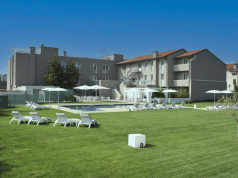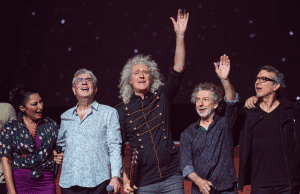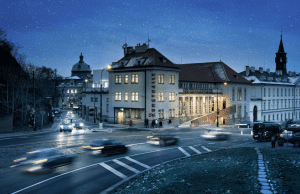DEFINITION
Definition of the “meeting architect” by Maarten Vanneste
A Meeting Architect is an individual who focuses on the potential meeting objectives, the meeting formats and designs, and the conceptual and practical building blocks for constructing a meeting aimed at better learning, networking and motivation in the participant population. He or she also knows how to measure the meeting results up to level 5 ROI.
THE STARTING POINT
The first professional meeting architect was employed in 2016 by the global PCO agency Kenes. The expert Roso Garriga Mora was appointed to this position. It was a major milestone for all of us who believe that event organising is much more than ordering snacks and taking care of basic logistical tasks. The profession of an event architect is to focus on the content and strategic goals of an event and creating additional ROI. As event architects, we use various tools that guide us to better events. The objective is to create events that are coordinated with the needs and expectations of the participants and clients. To put it bluntly, we strive to create better events.
THE CONCEPT
Some time ago, I was part of a webinar hosted by the legendary author of the Meeting Architecture concept, Maarten Vanneste. One of the most inspiring parts of the online meeting was the part where he provoked us to consider what we are. Are we eventprofs, producers or teachers? We, the participants, agreed that our mission and profession is even more significant during the rule of online events. Even more, several colleagues believe that we should start learning the ropes of TV production.
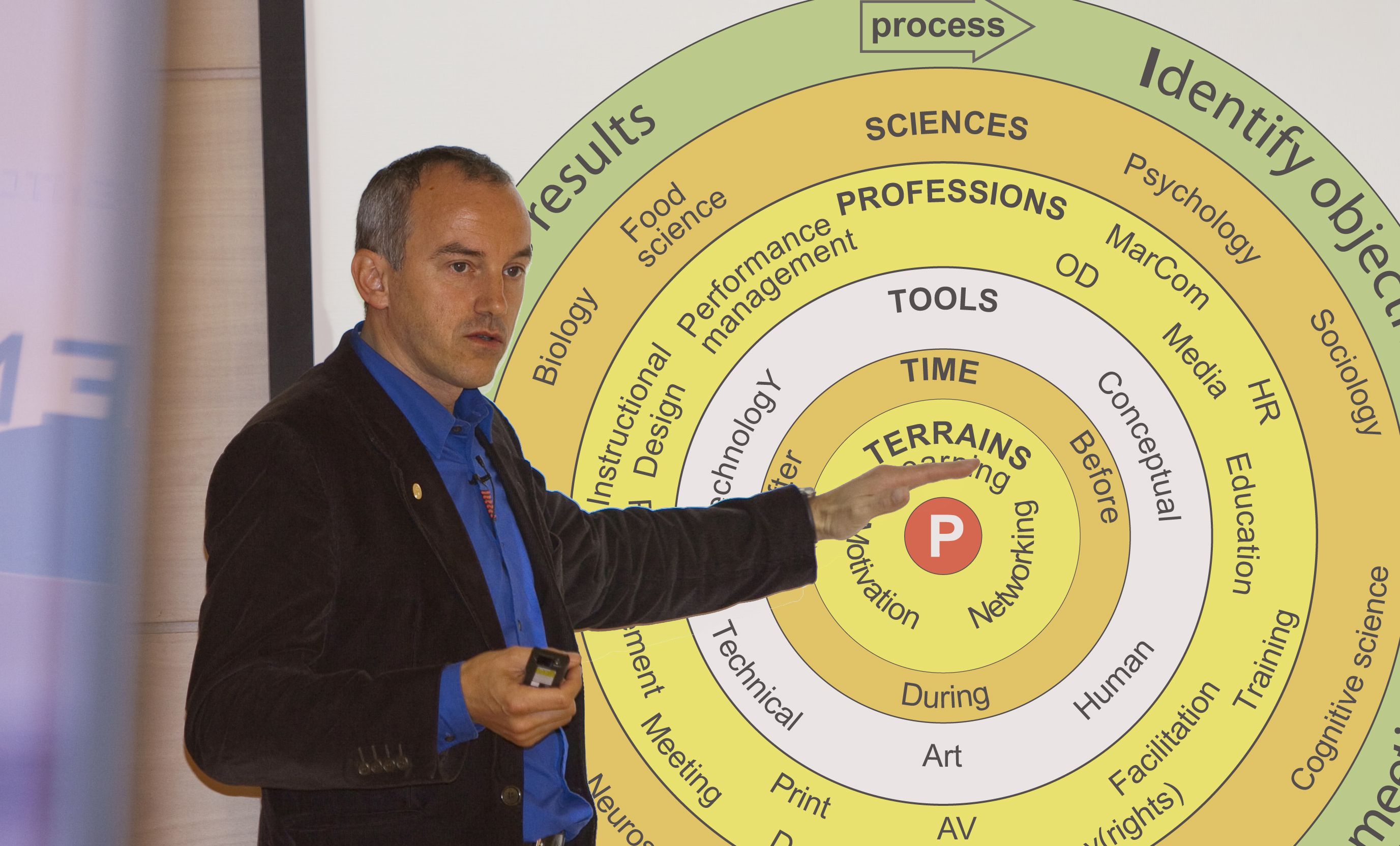
In my opinion, online events have not changed too radically. After all, they have been with us for a long time and are not exactly a novelty. For instance, Skype started in 2003. Broadly speaking, the rule of what you cannot measure, you cannot control applies for both online and hybrid events. Events have to create measurable added value for organisers and participants. Calculating ROI is purely a mathematical process, whereas measuring ROE is a far more complex process, as it includes the changes and effects the event caused. The changes happen in three fields: learning, networking and motivation. These fields are the heart of our story, which we, eventprofs or, as Maarten calls us, “meetings architects” master. Altogether, nothing has changed because of COVID. On the contrary, the skills and knowledge of event organisers are gaining significance and value. Indeed, we must only play our role in this new, very digital event ecosystem.
With a bit of compliance and learning, we can transform ourselves from PCOs (Professional Congress Organisers) to DCOs (Digital Congress Organisers).
Would you let a bricklayer perform surgery on you, a butcher build your house, a cleaner fix your computer, or a football player organise your event?
It is no surprise that the profession of event organiser is among the most stressful jobs. Hence, with the help of our database, this chapter will showcase just how serious a profession event organising is.
TIPS AND TOOLS
Recently, a colleague of mine from the hotel industry came to me for advice on organising his business event. I gladly helped him, as we have been colleagues since our college years. Nevertheless, I felt a slight resentment, as every time I enter his hotel bar, I pay for the coffee and a polite conversation with the staff. According to him, my advice is supposedly free of charge.
I realised that this was a fundamental misunderstanding, about which we have been talking for a long time. As I have written before, apparently, anyone knows everything about event organising.
Not knowing the basic principles of event organising usually changes to improvising and sometimes achieving all but pleasant experiences. The truth is that there are daily, almost routine events for which there is no need to involve an event agency. The client usually has a competent team for such events. Together with a touch of creativity and orderliness, such events can be brilliantly executed independently.
The noticeable shift occurred when I asked him completely concrete questions, which changed his perception entirely. The advantages of an event agency are the incomparably greater experience in the field of event organising and a team of experts who ensure a superb event.
I have gathered some of the questions worthy of being presented before a client. The list is endless, and you can tailor the questions as you wish:
These are only a few questions that you can answer yourself or ask the opinion of an event professional as part of a good briefing. This will certainly help focus your thoughts and give you answers to the noted questions.
The standard should not be only to cut expenses and give a likeable image of event organising. Today, event agencies include and implement knowledge from specialist fields, new marketing technologies and include entire toolboxes of tips and tricks to ensure successful events. Even the most experienced client can hardly master the spectrum of modern event management. Sometimes, help is required and here is where event agencies come to their aid.
Event agencies and their benefits can be translated into the sports world. For instance, a football team works in harmony and according to the principle “one for all, all for one”. Similarly, this principle of reciprocity is almost identical to the work of event agencies. The best agencies know how to excellently motivate their team and guide them to victory. The final triumph is a result of the details that make all the difference.
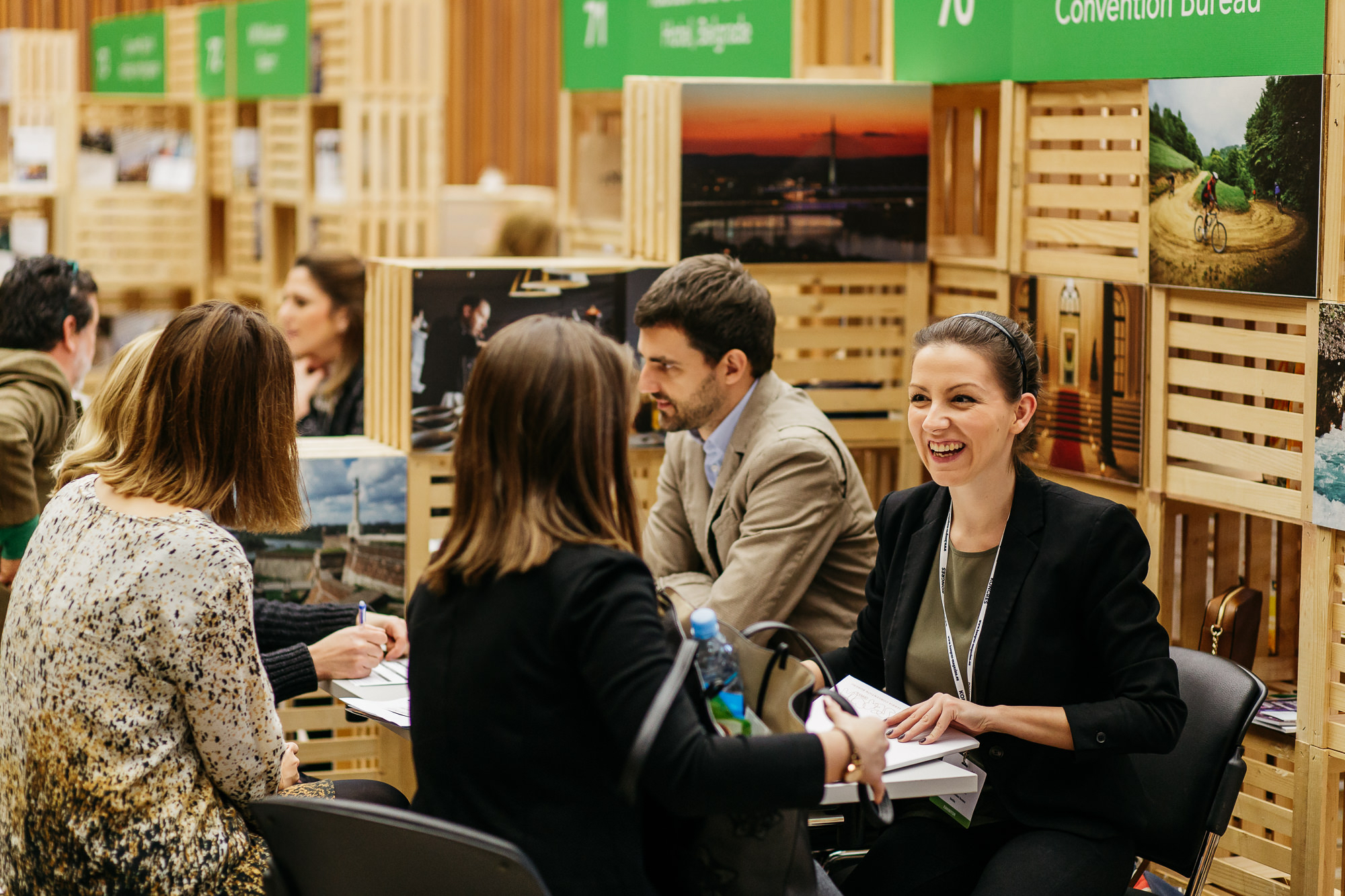
In the age of event hyperproduction, choosing the right agency can be decisive for success. Make sure to include the right event agency for your next event!
The capabilities of the human brain are wondrous, and it is surprising that the meetings industry puts only so much effort into this field. It seems that we are betting on the wrong horse. Event personalisation and emotionalisation do not occur on technological platforms, but rather with storytelling and content that touches the hearts of participants.
Modern neuroscience discovered the connection between storytelling and a feeling of comfort occurring in the brain a while back. The stories start an emotional reaction in the brain, and consequently, the brain starts to release the neurotransmitter dopamine. It is exactly dopamine that plays a key role in pleasure and passion. Dopamine mobilises the energy sources of the human body, giving us a feeling of activeness, liveness and puts us in a good mood. As event organisers, we can offer our helping hand in storytelling.
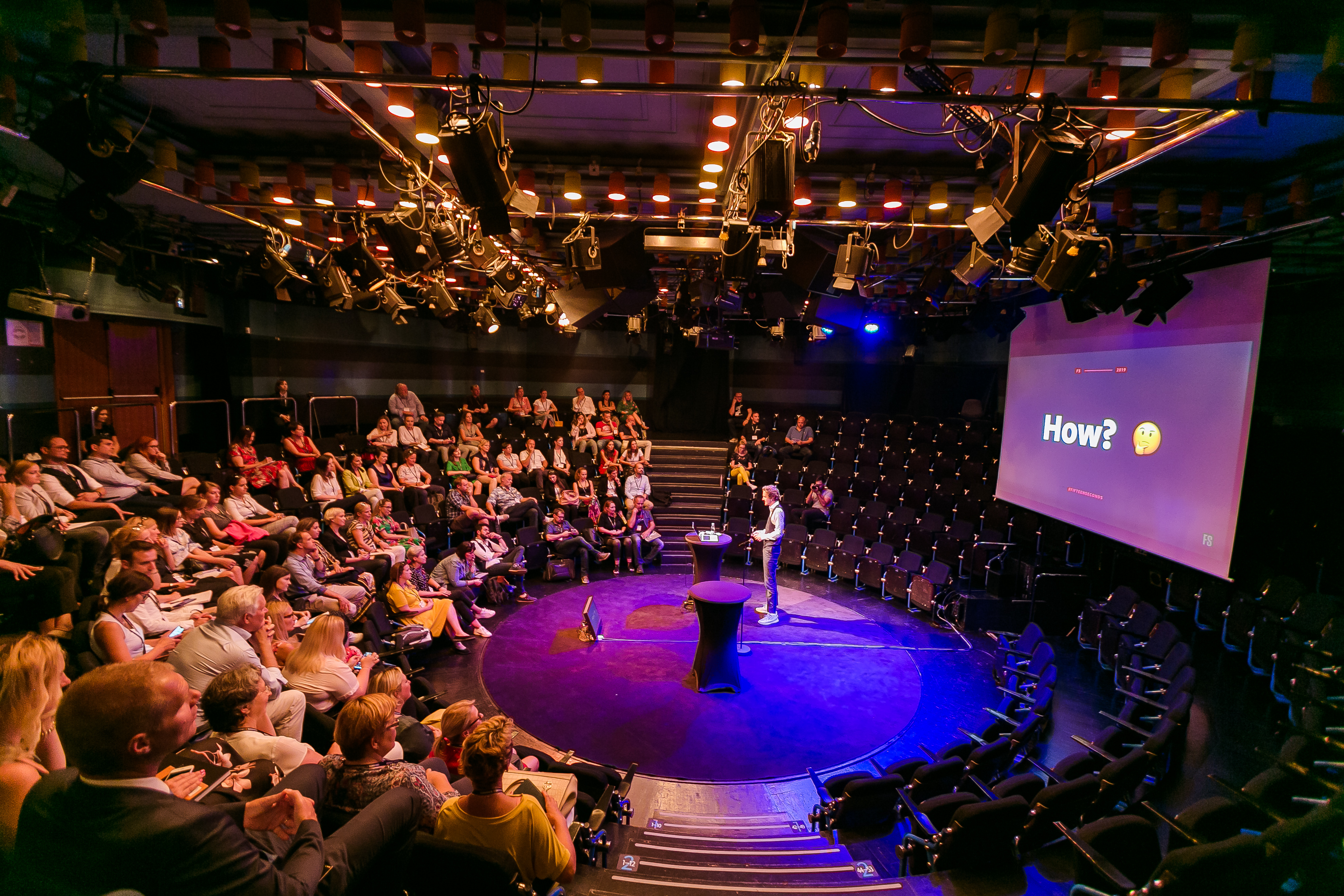
RECOMMENDATIONS
How to separate the wheat from the chaff is becoming the most important question posed by event clients. It is good to know per se that streaming is not the same as a hybrid or online event. Likewise, digital platforms are only a part of hybrid events. It is also good to know everything you might need for a successful online event.
All tools and techniques that exist today and are within arm’s reach, need to be connected into an effective and working event with added value. As event organisers, we can offer the best solution for creating such events. The IT sector, on the other hand, has apparently developed the finest software in the world, is a complete stranger to this dimension and usually finds it irrelevant. The event industry must start to advocate its position in the brave new world of events. Professional congress organisers do not need to turn into software providers because of the corona crisis. We should consider how we are going to help clients plan and make their hybrid and online events. Moreover, we should help clients fulfil their objectives and raise participants’ expectations. Today, more than ever, creativity is far more important than logistics.
INSPIRATION
Why are some meeting destinations more successful than others?
Because they know who their congress ambassadors are. Additionally, because they support, recognise and help their congress ambassadors create and organise events. The best destinations are aware that this is the fastest way to attract international congresses, which are among the most wanted segments of tourism due to their multiplicative effects.
The project SAP – Slovenian Ambassador Programme is so valuable exactly because of this. In my opinion, it was the most groundbreaking event in 2019. The idea behind the project had been developing for some time, and the project’s concept was long expected, at least by particular destinations and providers. It seems the project was worth the wait. The exceptional event, which took place at Ljubljana Castle, was a testament to the meaning of the project to the entire industry. Each ambassador and each congress initiative is of great importance, as well as the sixteen partners who supported the initiative. We can credit them for the numerous international congresses and other business events that were organised in Slovenia.
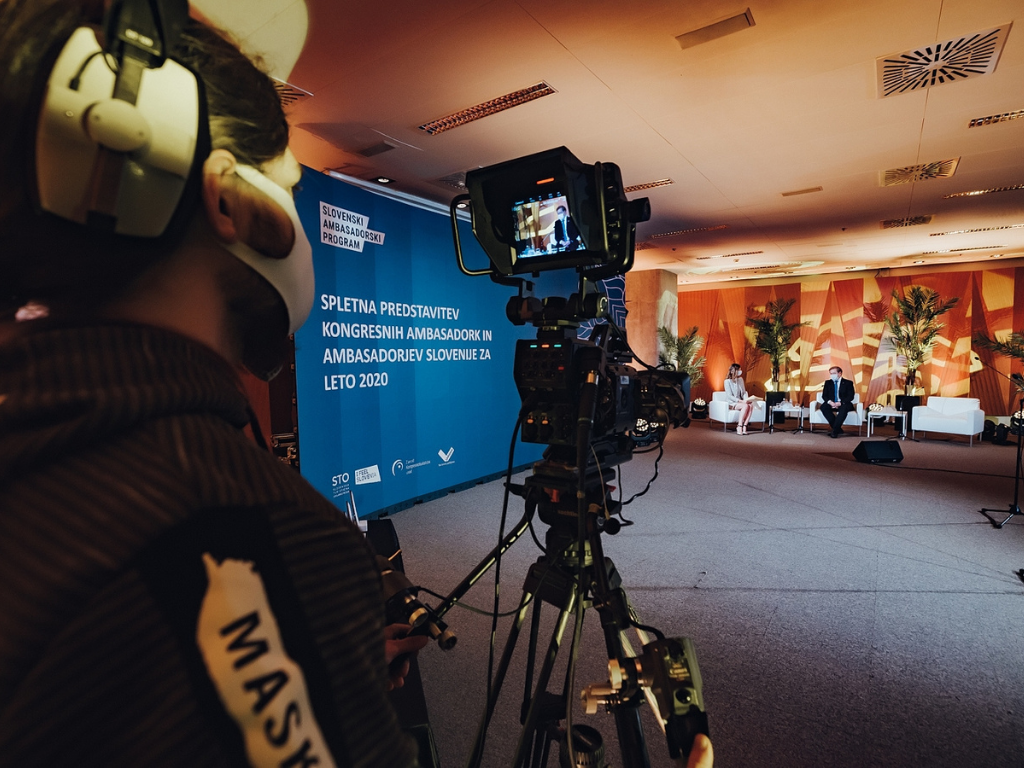
“ONLY WITH CLEARLY DESCRIBED AND PRIORITIZED GOALS SHOULD WE START THE MEETING DESIGN BECAUSE THE DESIGN NEEDS TO SUPPORT THE OBJECTIVES.”
Interview with Maarten Vanneste, CEO Abbit Meeting Innovators, President of the Meeting Design Institute and Author of Meeting Architecture.
Like an architect designs a house, so a meeting architect designs a meeting, conference event, etc. Meeting design is the second stage in the meeting architect’s work and comes after the identification of objectives and before the execution and measurement.
Q: What is meeting design and why do we need to rethink the way we organise our events?
As you will see, every practitioner has a different perspective, and they will each work for clients that match their style, culture and priorities. The overarching perspective, irrespective of style and culture is ROI; Return on Investment. If we decide to spend time and money on a meeting, conference or event, we need to get the most out of it. Participants need to go away and do more of what the meeting was set up to do: its objectives. We need to make sure all the objectives are clearly described and prioritised. And only then should we start with design because the design needs to support the objectives.
So, meeting design is the second stage in the meeting architect’s work. It comes after the identification of objectives and before the execution and measurement. We need to rethink everything we do constantly, not just meetings. And we need to innovate whenever there is an opportunity to do whatever it is we do better. Certainly in meetings and events. Meetings (whenever and however groups come together) are the most impactful, visible, expressive, influential and also expensive moments for groups of people, be it corporate teams or association peers.
Such a moment where everyone invests time and money should most certainly be the best it can be. The importance and complexity are such that a professional is recommendable. And whether this professional is called a producer, meeting designer, communication professional or meeting architect is irrelevant, as long as this person is widely and broadly educated in all segments of meeting architecture so they can be the best ‘master builder’ for the project at hand.

Q: What is wrong with the format of meetings as we have them now?
Nothing is wrong. Unless it does not support the objectives.
In our industry, you have practitioners who build soft and people-oriented meetings and others that do more directive, top-down messaging events for corporate clients. Left and Right, if you want to compare it to political terminology.
Q: What would you do to make a meeting creative and powerful?
Why would I do that? Who says a meeting needs to be creative or powerful? It can be a dry but extremely important technique that feels boring and weak but has the right impact.
Q: How can venues support meeting design?
In a million different ways, but that would be a book in its own right. Furniture, flexibility, service, creativity, technology and many more categories where venues could work to support the objectives. Everything starts with the building and how it is created. Many meeting rooms are fundamentally wrong in the sense that they do not allow for a good meeting. Architects of meeting space still make the same mistakes that create a meeting designer or producer’s worst nightmare.
Q: What’s the best way to implement meeting design for your next event?
Implementation is done by looking at the design plan. That is something any project manager could do. But with the designer keeping a good eye on the execution, helping to understand the design.
Like an architect designs a house, so a meeting architect designs a meeting, conference event, etc. Meeting design is the second stage in the meeting architect’s work and comes after the identification of objectives and before the execution and measurement.
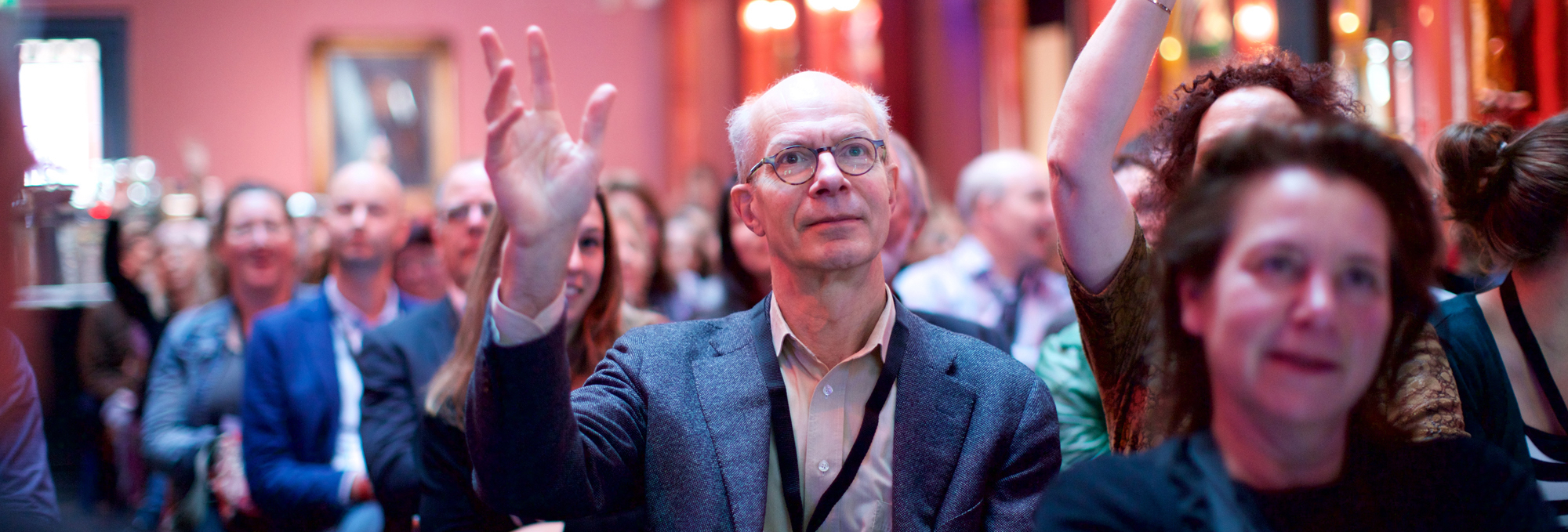
MEETING DESIGNER
Q: Who is a ‘meeting designer’?
To be a designer is quite easy, to be a good one is another thing altogether. The person who influences the design of a meeting or event is a meeting designer. To be a professional one (one that can make a living from meeting design) you need enough work, and you could find such people in many event agencies, but they don’t see themselves as such.
To be a meeting designer with a diploma is impossible today. And getting a certificate after two, three or even eight days of training will, of course, not make you a good, let alone great, professional meeting designer. As a senior teacher and leader from an American University once said after seeing the curriculum for meeting architecture: ‘This is a four-year course!’ and I hope that one day it will be. In Belgium, it is mandatory to use a qualified architect (five years of university) to build a house of 100,000 square metres and the architect remains accountable for the quality of the work for 10 years. People without a degree in meeting architecture work on events 10 times that size or more. Or anything that comes close. It makes you wonder why procurement or Strategic Meeting Management Professionals (SMMP) allow this to happen.
BENCHMARK
Q: Give us an example of one of your favourite and best-designed meetings?
From a discipline perspective: A well-designed meeting is one that demonstrates higher productivity/higher impact or even ROI than that of the year before. From a professional personal perspective, the one where I meet my next biggest client. From a personal perspective, the meeting where I had the most fun.



